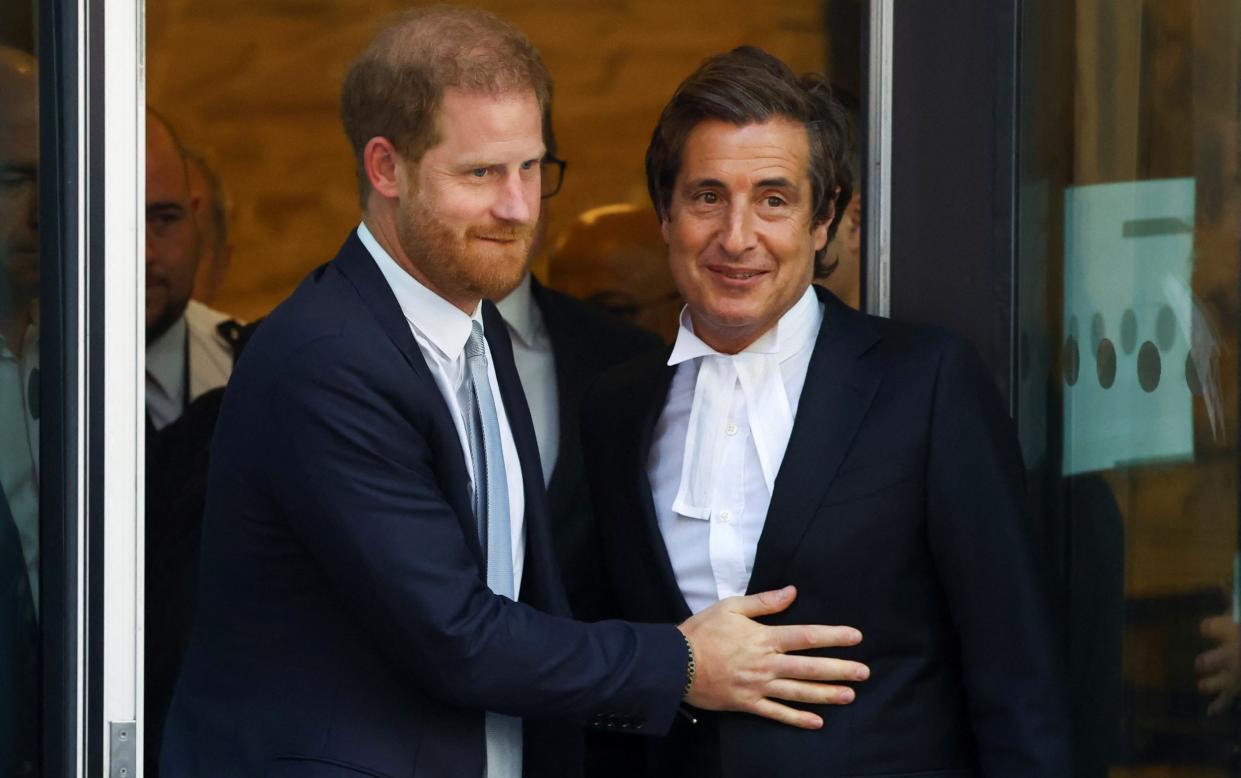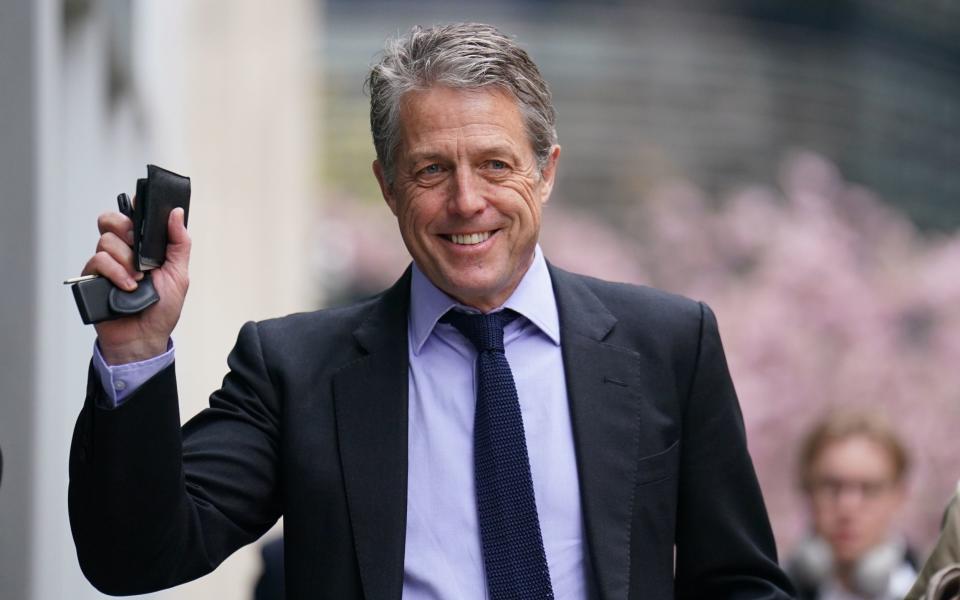Prince Harry may be forced to settle court claim against The Sun because of ‘impossible’ legal costs

The Duke of Sussex might be forced to settle his High Court claim against the publisher of The Sun due to “impossible” legal costs, his barrister has admitted.
David Sherborne said Prince Harry faced the same predicament as fellow claimant Hugh Grant, who revealed on Wednesday that he had settled with News Group Newspapers (NGN) for an “enormous sum” as he could not risk an estimated £10 million legal bill.
The 63-year-old actor, along with the Duke of Sussex and more than 40 others, had sued NGN over alleged unlawful information gathering and invasion of privacy. A trial is scheduled for January 2025.
In 2021, actress Sienna Miller settled her own case against the publisher because of the risk of having to pay millions in legal fees even if she won.
Mr Sherborne told the High Court on Wednesday: “The Duke of Sussex is subject to the same issues that Sienna Miller and Hugh Grant have been subject to, which is that offers are made (which) make it impossible for them to go ahead.”

Grant claimed he was targeted by journalists and private investigators working for The Sun, “including burglaries to order, the breaking and entering of private property in order to obtain private information through bugging, landline tapping, phone hacking”.
However, he said, he had been forced to settle because the rules of civil litigation meant if he was awarded damages “even a penny less” than the settlement offer, he would be liable for the legal costs of both sides.
“As is common with entirely innocent people, they are offering me an enormous sum of money to keep this matter out of court,” he wrote in a lengthy explanation on Twitter/X.
‘I don’t want to accept this money or settle’
“I don’t want to accept this money or settle. I would love to see all the allegations that they deny tested in court. [NGN owner] Rupert Murdoch’s lawyers are very expensive. So even if every allegation is proven in court, I would still be liable for something approaching £10 million in costs. I’m afraid I am shying at that fence.”
NGN said it was “in both parties’ financial interests not to progress to a costly trial”.
The Love Actually and Notting Hill star has been the public face of the Hacked Off campaign against the tabloid newspaper industry since it launched at the height of the phone hacking scandal in 2011.
In 2012, he became director of a not-for-profit company set up by the campaign, and also played a leading role at the Leveson Inquiry into press standards.
Last May, he suffered a significant setback when he was denied the chance to take the phone hacking element of his claim to trial because it was brought too late.
Money to go to Hacked Off campaign
In his statement, Grant claimed Mr Murdoch had spent more than £1 billion in damages to claimants and in lawyers’ fees, alleging that the media mogul appeared “remarkably determined that there shouldn’t be a trial of the facts”.
Despite accepting the “enormous’ settlement, he said the money “has a stink”, and he refused to let it be “hush money”. He intends to donate it to groups such as Hacked Off “to expose the worst excesses of our oligarch-owned press”.
The Duke of Sussex asked the judge in March if he could extend his claim by incorporating allegations dating from 1994 until 2016, rather than the current 1996 until 2011.
NGN has applied for a separate trial to take place ahead of the full trial to determine whether the outstanding claims were brought too late.
Anthony Hudson KC, for the publisher, noted that the original arrests and charges brought against phone hacker Glenn Mulcaire and the News of the World’s royal editor Clive Goodman in 2006 were “high-profile” and covered by “extensive reporting”.
Despite this, he said, the Duke had not issued proceedings until 2019, 23 years after the earliest wrong alleged in his current claim and eight years after the most recent.
“Accordingly, the primary limitation period of six years has expired, by a significant margin,” he said.
Publisher’s move is labelled ‘plainly tactical’
The barrister said that if the issue was addressed ahead of time, it might avoid the need for a full trial, or limit its scope, “saving substantial costs and court time”.
He noted that the litigation had already taken up a huge amount of court time, amassing “well over £30m in common costs just up until September 2020.”
But Mr Sherborne, for the Duke and others, argued that a second trial would be “pointless” and made “no sense at all”. He told the judge: “This application is plainly tactical.”
An NGN spokesperson said: “In 2011, an unreserved apology was made by NGN to victims of voicemail interception by the News Of The World. Since then, NGN has been paying financial damages to those with proper claims.
“As we reach the tail end of litigation, NGN is drawing a line under disputed matters, some of which date back more than 20 years ago. In some cases, it has made commercial sense for both parties to come to a settlement agreement before trial to bring a resolution to the matter.
“There are a number of disputed claims still going through the civil courts, some of which seek to involve The Sun. The Sun does not accept liability or make any admissions to the allegations.
“A judge recently ruled that parts of Mr Grant’s claim were out of time and we have reached agreement to settle the remainder of the case. This has been done without admission of liability. It is in both parties’ financial interests not to progress to a costly trial.”
Meanwhile, the Duke has updated business filings to describe his primary residence as the United States.
Documents lodged with Companies House concerning his position as director of Travalyst, his sustainable tourism initiative, were amended to declare the state in which he is usually resident is the US, rather than the UK. The change was made last June but only registered on electronic filings this week.

